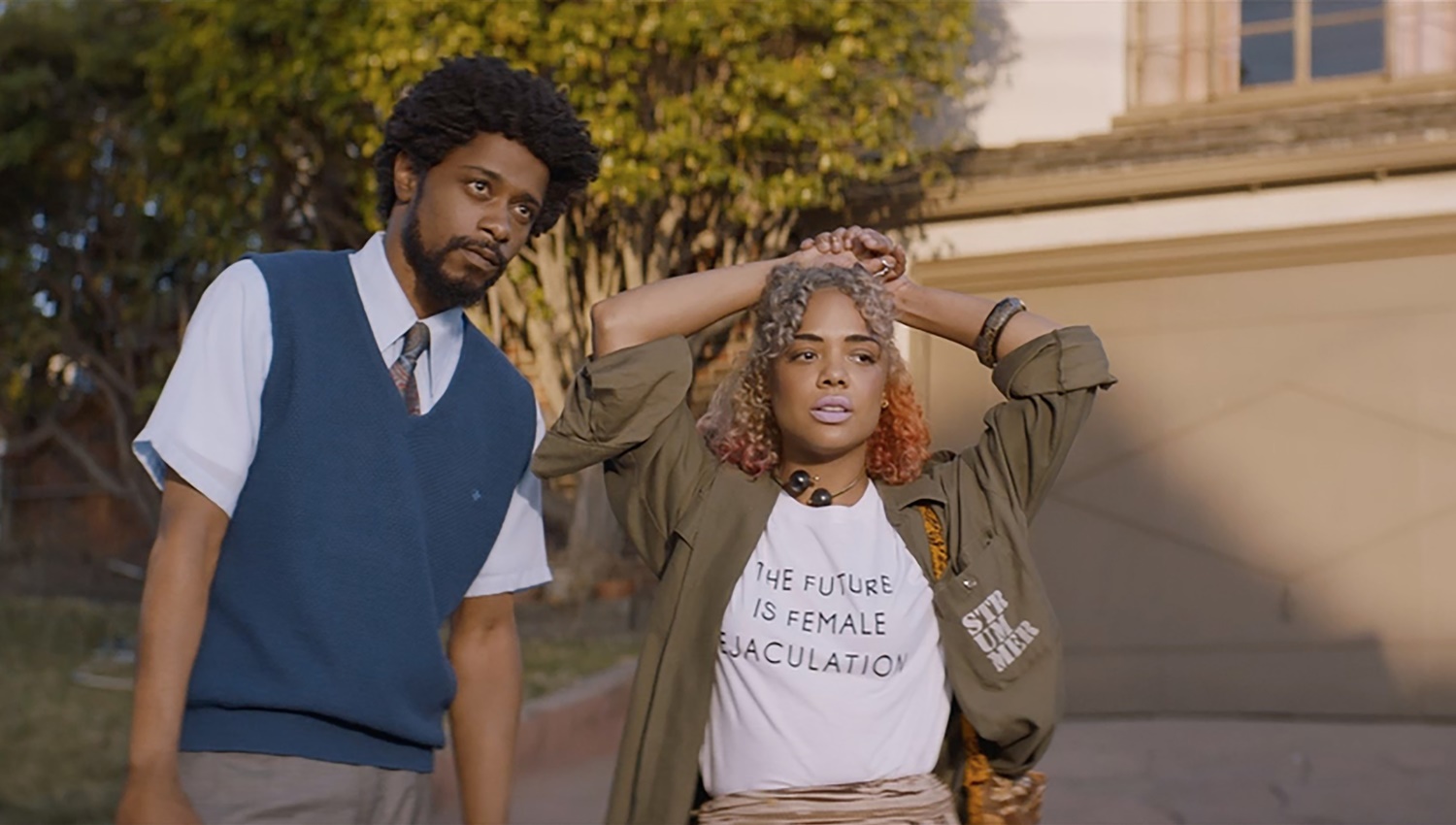
Sorry to Bother You
Dustin Chase
What starts off as an entertaining allegory on modern life in California, quickly escalates into a macabre futuristic tale. Rapper turned filmmaker Boots Riley makes his directorial debut with “Sorry to Bother You” that is equal parts absorbing and repellent. This feels like an attempt to piggy-back off the success, message, and popularity of “Get Out,” and for the first hour, it certainly does. Lakeith Stanfield who stars in both films is particularly good here as a character who evolves throughout the script. Riley has handfuls of creative blips in the film, like 40 cents for gas, earring messages, and perhaps the most memorable “the white voice.” From start to finish, the narrative is reincarnated multiple times, turning off audience members with each shift until only a select few will remain in this movies corner.
In the near future society is dominated by the Worry-Free Living corporation, Cassius Green (Stanfield) lands a job at one of Worry Free’s call centers selling crap no one wants. The job amounts to little more than modern slave labor, but with the promise that if you do well, you can become a “power caller,” and move upstairs with your own office and private elevator. A co-worker gives Cassius some advice after multiple hang-ups with his new job, “Use your white voice.” This works and Cassius rises to the top, but that’s where his morals are tested as power callers like himself, are tasked with selling Worry Free-living to large corporations. Girlfriend and activist Detroit (Thompson) enjoys going from garage apartment to high end but can’t abide how they are making their money, so Cassius must choose between the one thing he has ever been good at and standing for what’s right.
Equal parts absorbing and repellent.
“Sorry to Bother You” (which refers to the way Cassius begins each telemarketing call) is a blend of Spike Lee and Quentin Tarantino’s filmmaking style of making specific points about social and political subjects in unusual and creative ways. The script is savvy in the way it touches on rioting, police brutality, corporation overreach, and of course the American Dream. When Armie Hammer (“Call Me By Your Name”) shows up as the innovator behind the controversial new kind of slavery, things get super weird as equi-sapiens are introduced into the story. If men with horse bodies and enormous swinging Johnsons weren’t bizarre enough, the rap song Cassius is forced to invent at a rich white party might well have people walking out.
This script has something to say about everything, yet with so many ideas, the audience is overwhelmed with what exactly we are supposed to take away from it. “Sorry to Bother You” is almost as outlandish as John Cameron Mitchell’s “How to Date Girls at Parties.” Both stories exist in a hyper-reality, but Mitchell’s film is slightly more accessible and less politically motivated. David O. Russell’s “I Heart Huckabees” is another example of what to expect from “Sorry to Bother You.” If nothing else, here is a film that will create conversation and that’s sometimes more beneficial than the entertainment value.
Final Thought
Imagination and creativity are seemingly at the heart of “Sorry to Bother You” until the script forges an entirely different path.
